NZ election: The people left behind in Ardern's 'kind' New Zealand
- Published
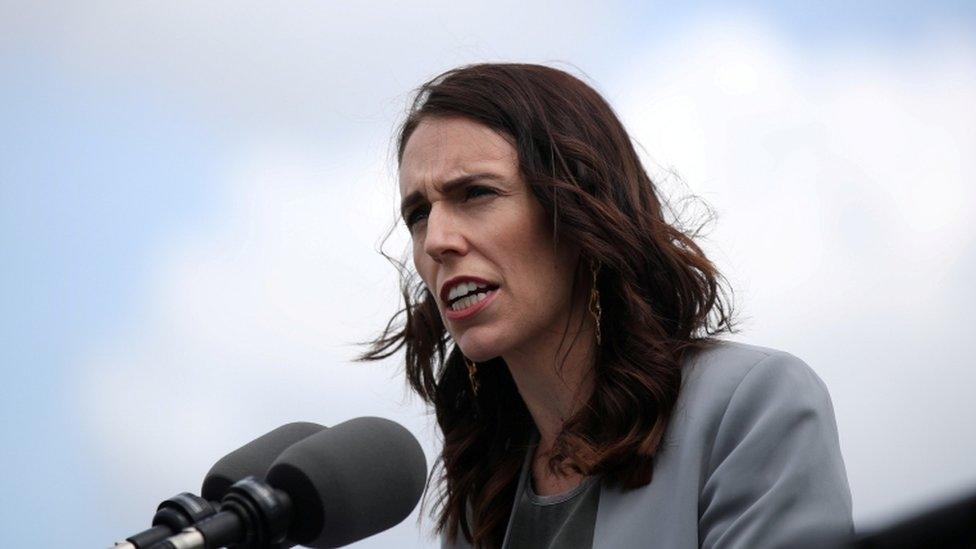
Jacinda Ardern been widely praised for her strong and compassionate leadership
Throughout her tempestuous first term as New Zealand's prime minister, Jacinda Ardern has maintained a message of kindness. But as she seeks another term in power, critics say that it will take more than kindness and charisma to get the economy on its feet and lift tens of thousands of people out of poverty, writes the BBC's Shaimaa Khalil.
"Where I come from, there's no kindness happening," says Agnes Magele, a Pacifica-origin single mother of three who lives in South Auckland, the poorest area in New Zealand's biggest city.
The phrase "be strong, be kind" became a trademark of Ms Ardern's leadership at the height of the Covid-19 pandemic lockdown.
Ms Magele also says she doesn't feel like she's part of the "team of five million"- another phrase coined by Ms Ardern when referring to the population of New Zealand.
"Is it kind when people don't have enough money to buy basic essentials, such as food, for their children? Is it kind when parents have to skip meals so their kids have a bigger portion?" she asks.
Ms Magele and her family have struggled for years. She lost her job as a TV extra two weeks before the first Covid-19 lockdown. She's now on the job-seeker benefits of 250 New Zealand dollars (£127; $164) a week. She says that doesn't even cover half her rent.
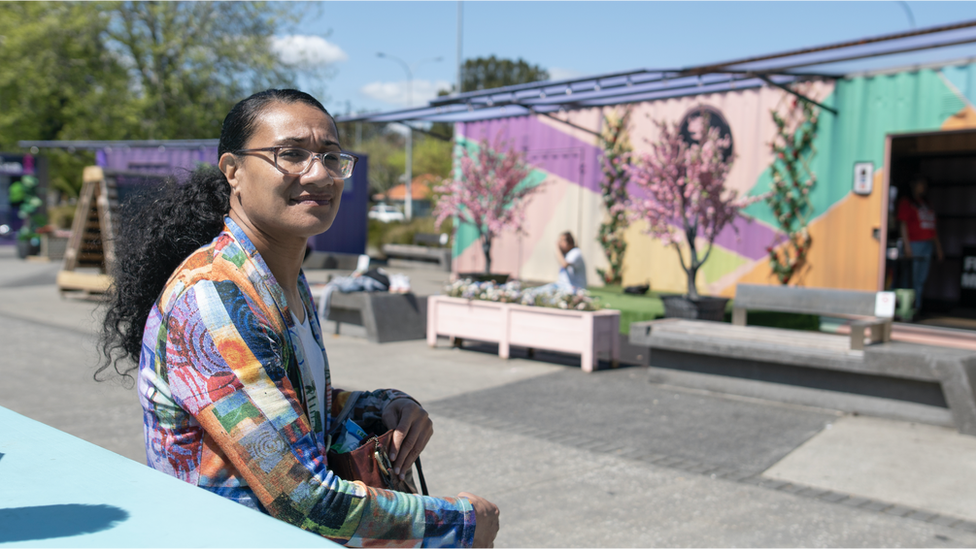
Agnes Magele is among those who say Ardern has not done enough to combat poverty
Jacinda Ardern has captured the world's imagination and been widely praised for her strong and compassionate leadership as she steered the country through turbulent times including a terrorist attack in Christchurch, a natural disaster when the White Island, or Whakaari, volcano erupted, and a global pandemic.
But critics say her government has failed to tackle child poverty - one of her key promises when she came to power in 2017.
An annual report card released by the United Nations Children's Fund, external (Unicef), in early September, compared the performances of 41 high-income countries on child welfare issues, from suicide rates to childhood obesity, education and environment. New Zealand is at the bottom third in 35th place.
The prime minister countered that the Unicef report had not taken into consideration the NZ$5.5bn Families Package which she said has lifted 18,400 children out of poverty.
But the government doesn't fare much better even by its own statistics. The latest data has shown only small changes.
The plight of Maori and Pacifica citizens
Under the Child Poverty Reduction Act, Stats NZ is required to annually report on nine different measures for child poverty. Material hardship is one of the most prominent measures which includes not eating fresh fruit and vegetables, putting off a visit to the doctor, or not being able to pay bills on time.
For June 2018 to June 2019 there was no significant change to the percentage of children living in material hardship, compared to the previous year. The figure remains at about 13%, external - that's 151,700 or one in eight of New Zealand's children.
Poverty is remarkably high in Maori and Pacifica households, with nearly 1 in 4 (23.3%) of Maori children and nearly 1 in 3 (28.6%) of Pacific children living in material hardship.
These are sobering numbers and in many ways jar with New Zealand's global image of prosperity and general stability.
"European/white New Zealanders have a very different life experience to our Maori or Pacifica citizens," says Unicef NZ executive director Vivien Maidaborn.
Ms Maidaborn adds that the white experience in New Zealand, which is predominantly much more financially stable, is taken as the mainstream when actually it's very different from many other parts of the population.
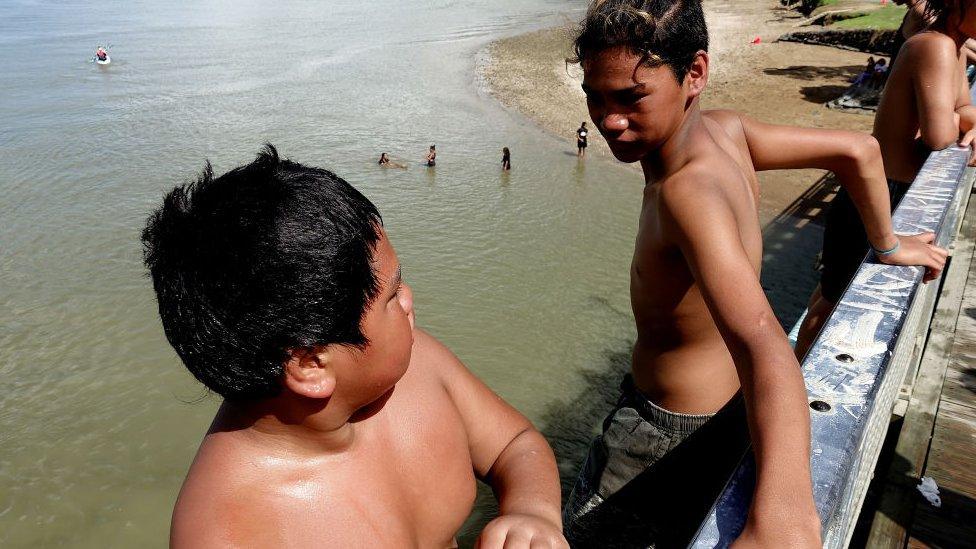
Poverty in Maori and Pacifica households jars with New Zealand's global image of prosperity
Ms Magele, who volunteers with Auckland Action Against Poverty, an organisation that advocates for low-income families to help them navigate the welfare system, has seen this in the families she helps.
She says that in her poor neighbourhood of Otara in South Auckland with a large Maori and Pacifica population, many people have been forced into homelessness because their income or benefits don't cover their rent.
She said the combination of low benefits and high rent has made it impossible for thousands of families, like hers, to make ends meet.
"Sometimes my kids don't like going to school because they're not in the correct school uniform and they don't have enough lunch to go to school with. That really does a lot to children's mental well-being," Ms Magele says.
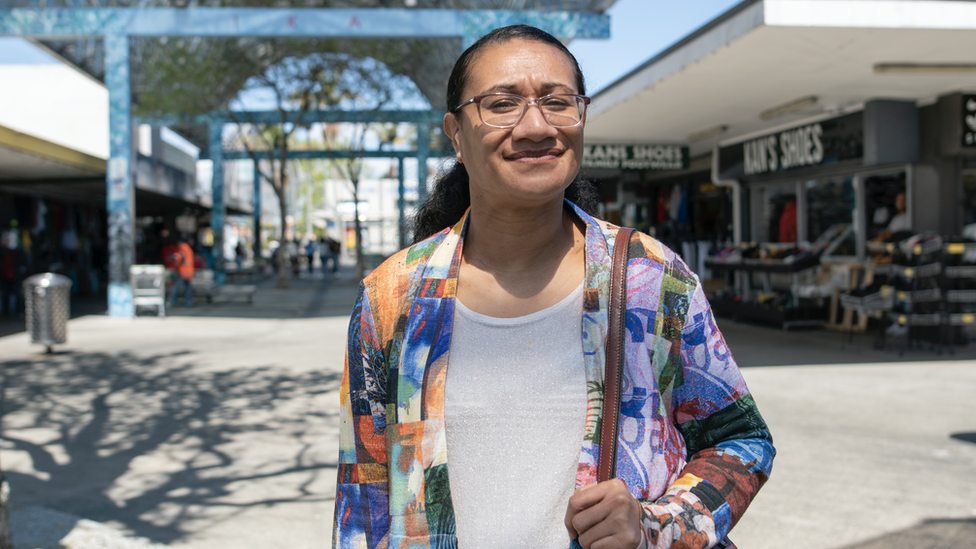
Agnes Magele and thousands of others have found it impossible to make ends meet
"New Zealand has now approached a tipping point when it comes to housing," says Brad Olsen, a senior economist with Infometrics, an economics analysis think tank.
Mr Olsen says that the number of people trying to get into government funded housing went from 4,000 between 2014-2016 to 20,000 in the years that followed.
"That highlights how precarious and under how much pressure these families are," he explains.
He adds that it's not only a lack of houses but the fact that those which already exist are substandard.
"A lot of the time the housing quality is poor. That reinforces some of the issues with poverty: people with healthcare [problems] not able to stay warm and dry or feed the kids because they're trying to put more money into heating or to take the children to the doctor."
Mr Olsen said the housing crisis adds to the complexity of poverty in New Zealand.
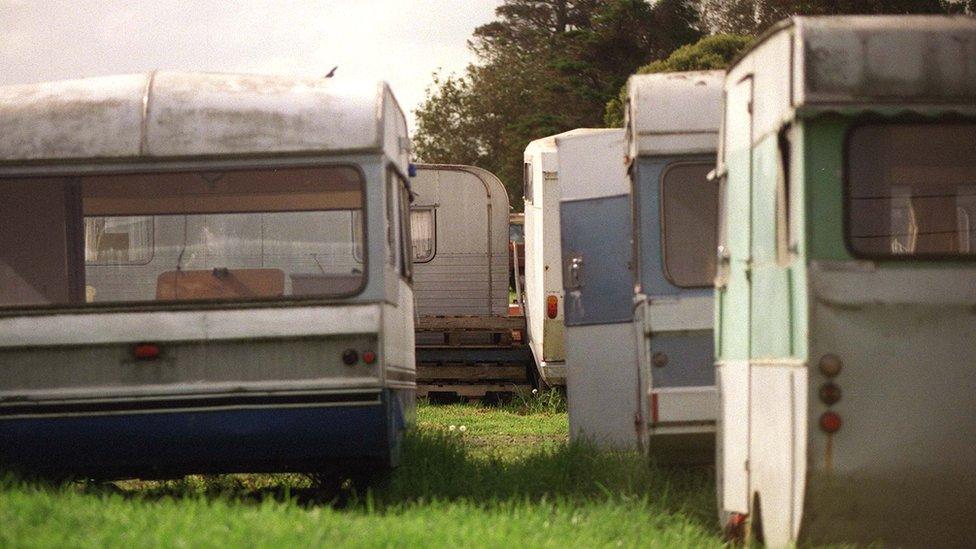
Analysts say the country has approached a tipping point when it comes to housing
Auckland Action Against Poverty says that another indicator of how bad things have become is the increase in demand for food parcels.
It adds that three years ago, 100,000 food grants were handed out by Work and Income (New Zealand's welfare system) in the three months of winter.
Right now that number is up to at least 500,000 - a fivefold increase in a period of three years. And that was even before Covid-19 hit.
Like many families in her area, Ms Magele gets by on food grants. She says sometimes families go without meals for days while they wait for government assistance. This has happened to her and her children repeatedly, she says.
"I've had to reach out to family and friends for a little bit of help but it's hard because they're also in the same predicament as me. It's like asking the poor to help the poor," she says.
Pandemic 'might entrench inequality'
The situation has been exacerbated by the pandemic and the subsequent lockdown.
Ms Maidaborn praised the government's response to Covid-19 but said it did little to alleviate the pressure on poor families.
"The subsidies at the welfare level have been quite focused on business. What we may have done is entrench the inequality between people who are already struggling and people who have wealth or assets but in terms of cash flow now are struggling," she says.
But Mr Olsen points out that the problem of poverty has been going on for years and will take a long time to solve, though he thinks it hasn't been tackled with enough urgency.
"I don't think there's any government in recent times that has made enough headway on poverty. I'm reluctant to say that any one has failed because as a country we have failed. This requires more than a three-year term," he says.
He added that as the country deals with the fallout from the pandemic, the government should do more to close the gap on inequality.
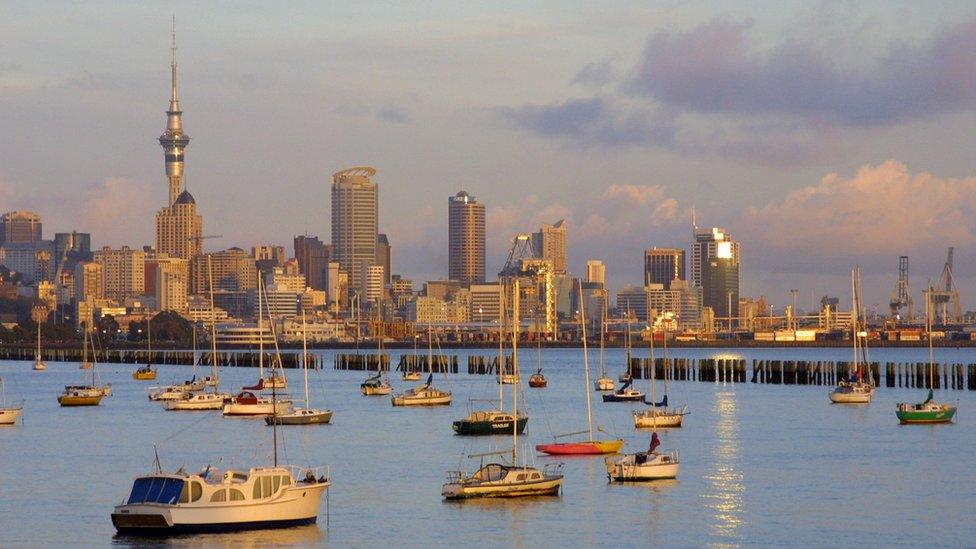
The situation has been exacerbated by the pandemic and the subsequent lockdown
"When we develop changes because of Covid-19 we need to make sure that we're not making changes back to the status quo. We need to go further than that and support a much wider body of people."
On Saturday, Jacinda Ardern is widely expected to win a second term in office - one that will have to tackle a recession, an on-going housing crisis and a nation that has lost a huge chunk of its income with tourism and trade at a standstill.
"The biggest lever that the government has, in terms of ending child poverty, is income to the poorest families… it makes the most difference the fastest," says Ms Maidaborn.
"It will be harder and harder to do [with the] economic recession but that is what will really change the lives of New Zealand's children," she explains.
Meanwhile Ms Magele has a simple message for the government. "Increase our benefits. Stop speaking of kindness and start doing something about it."
9 November 2020 clarification: The usual benefit amount available to sole parents in New Zealand is 375 New Zealand dollars per week.
- Published17 September 2020
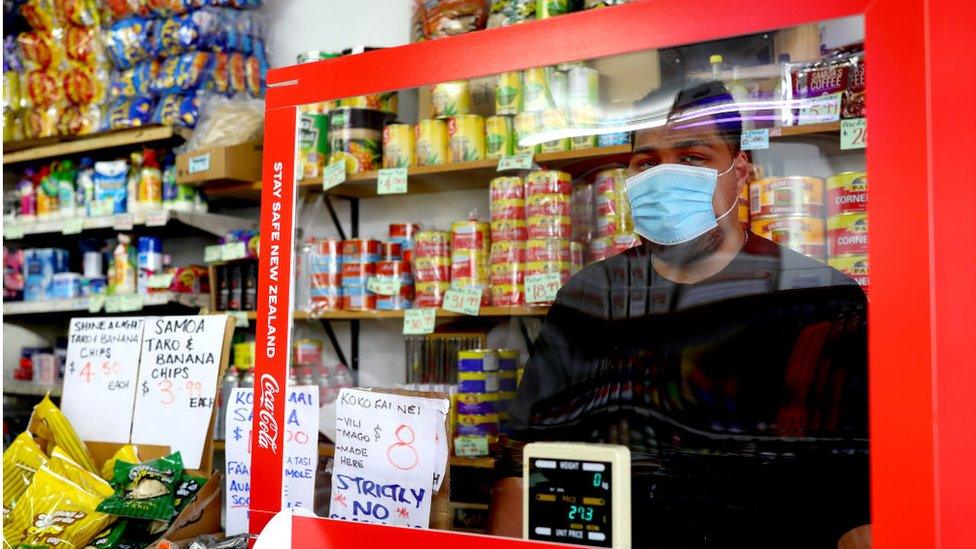
- Published17 August 2020
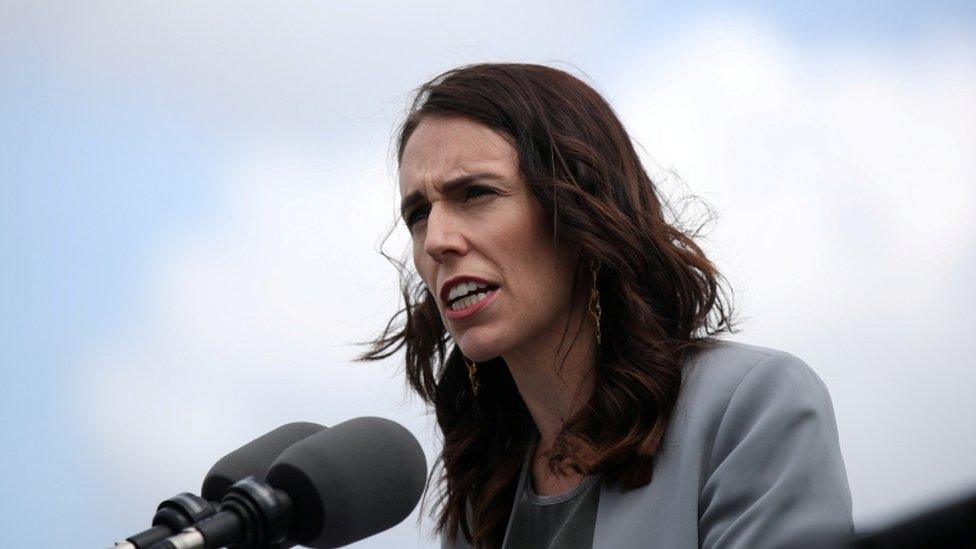
- Published10 July 2020
